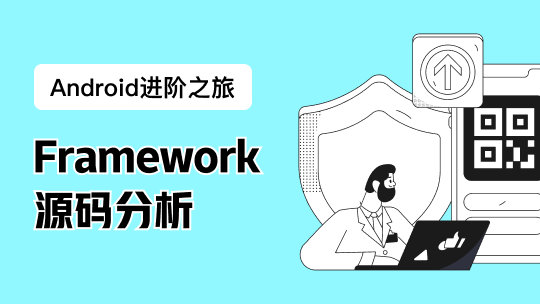Retrofit 2.6.0 之后支持接口suspend函数配合协程使用,举个例子:
ApiService
interface LoginApiService : BaseService {
@GET("/wxarticle/chapters/json")
suspend fun getChapters(): BaseResponse<List<Chapters>>
}Repository
class LoginRepository : BaseRepository() {
suspend fun getChapters(): BaseResponse<List<Chapters>> {
val service = retrofit.create(LoginApiService::class.java)
return withContext(Dispatchers.IO) {
service.getChapters()
}
}
}
从API调用入手Retrofit.create()
public <T> T create(final Class<T> service) {
validateServiceInterface(service);
return (T)
Proxy.newProxyInstance(
service.getClassLoader(),
new Class<?>[] {service},
new InvocationHandler() {
private final Platform platform = Platform.get();
private final Object[] emptyArgs = new Object[0];
@Override
public @Nullable Object invoke(Object proxy, Method method, @Nullable Object[] args)
throws Throwable {
// If the method is a method from Object then defer to normal invocation.
if (method.getDeclaringClass() == Object.class) {
return method.invoke(this, args);
}
args = args != null ? args : emptyArgs;
return platform.isDefaultMethod(method)
? platform.invokeDefaultMethod(method, service, proxy, args)
: loadServiceMethod(method).invoke(args);
}
});
}
动态代理,拦截接口方法,实际调用Retrofit.loadServiceMethod()
ServiceMethod<?> loadServiceMethod(Method method) {
ServiceMethod<?> result = serviceMethodCache.get(method);
if (result != null) return result;
synchronized (serviceMethodCache) {
result = serviceMethodCache.get(method);
if (result == null) {
result = ServiceMethod.parseAnnotations(this, method);
serviceMethodCache.put(method, result);
}
}
return result;
}ServiceMethod.parseAnnotations()
static <T> ServiceMethod<T> parseAnnotations(Retrofit retrofit, Method method) {
RequestFactory requestFactory = RequestFactory.parseAnnotations(retrofit, method);
Type returnType = method.getGenericReturnType();
if (Utils.hasUnresolvableType(returnType)) {
throw methodError(
method,
"Method return type must not include a type variable or wildcard: %s",
returnType);
}
if (returnType == void.class) {
throw methodError(method, "Service methods cannot return void.");
}
return HttpServiceMethod.parseAnnotations(retrofit, method, requestFactory);
}RequestFactory.parseAnnotations()
static RequestFactory parseAnnotations(Retrofit retrofit, Method method) {
return new Builder(retrofit, method).build();
}
new Builder(retrofit, method).build()
RequestFactory build() {
for (Annotation annotation : methodAnnotations) {
parseMethodAnnotation(annotation);
}
......
int parameterCount = parameterAnnotationsArray.length;
parameterHandlers = new ParameterHandler<?>[parameterCount];
for (int p = 0, lastParameter = parameterCount - 1; p < parameterCount; p++) {
parameterHandlers[p] =
parseParameter(p, parameterTypes[p], parameterAnnotationsArray[p], p == lastParameter);
}
......
return new RequestFactory(this);
}build()中遍历解析注解,parseParameter()中判断是否为挂起函数。
RequestFactory.parseParameter()
......
if (Utils.getRawType(parameterType) == Continuation.class) {
isKotlinSuspendFunction = true;
return null;
}
......回看ServiceMethod.parseAnnotations()返回值HttpServiceMethod.parseAnnotations()
boolean isKotlinSuspendFunction = requestFactory.isKotlinSuspendFunction;
boolean continuationWantsResponse = false;
if (isKotlinSuspendFunction) {
if (getRawType(responseType) == Response.class && responseType instanceof ParameterizedType) {
responseType = Utils.getParameterUpperBound(0, (ParameterizedType) responseType);
continuationWantsResponse = true;
}
}
if (!isKotlinSuspendFunction) {
return new CallAdapted<>(requestFactory, callFactory, responseConverter, callAdapter);
} else if (continuationWantsResponse) {
//noinspection unchecked Kotlin compiler guarantees ReturnT to be Object.
return (HttpServiceMethod<ResponseT, ReturnT>)
new SuspendForResponse<>(
requestFactory,
callFactory,
responseConverter,
(CallAdapter<ResponseT, Call<ResponseT>>) callAdapter);
} else {
//noinspection unchecked Kotlin compiler guarantees ReturnT to be Object.
return (HttpServiceMethod<ResponseT, ReturnT>)
new SuspendForBody<>(
requestFactory,
callFactory,
responseConverter,
(CallAdapter<ResponseT, Call<ResponseT>>) callAdapter,
continuationBodyNullable);
}这里走else if
return (HttpServiceMethod<ResponseT, ReturnT>)
new SuspendForResponse<>(
requestFactory,
callFactory,
responseConverter,
(CallAdapter<ResponseT, Call<ResponseT>>) callAdapter)retrofit.loadServiceMethod()最终返回SuspendForResponse
static final class SuspendForBody<ResponseT> extends HttpServiceMethod<ResponseT, Object> {
private final CallAdapter<ResponseT, Call<ResponseT>> callAdapter;
private final boolean isNullable;
SuspendForBody(
RequestFactory requestFactory,
okhttp3.Call.Factory callFactory,
Converter<ResponseBody, ResponseT> responseConverter,
CallAdapter<ResponseT, Call<ResponseT>> callAdapter,
boolean isNullable) {
super(requestFactory, callFactory, responseConverter);
this.callAdapter = callAdapter;
this.isNullable = isNullable;
}
@Override
protected Object adapt(Call<ResponseT> call, Object[] args) {
call = callAdapter.adapt(call);
Continuation<ResponseT> continuation = (Continuation<ResponseT>) args[args.length - 1];
try {
return isNullable
? KotlinExtensions.awaitNullable(call, continuation)
: KotlinExtensions.await(call, continuation);
} catch (Exception e) {
return KotlinExtensions.suspendAndThrow(e, continuation);
}
}
}回看loadServiceMethod().invoke()->ServiceMethod抽象方法
abstract @Nullable T invoke(Object[] args)子类HttpServiceMethod.invoke()
@Override
final @Nullable ReturnT invoke(Object[] args) {
Call<ResponseT> call = new OkHttpCall<>(requestFactory, args, callFactory, responseConverter);
return adapt(call, args);
}
protected abstract @Nullable ReturnT adapt(Call<ResponseT> call, Object[] args);调用到抽象方法adapt(),loadServiceMethod()方法返回值SuspendForResponse继承HttpServiceMethod重写了该方法
@Override
protected Object adapt(Call<ResponseT> call, Object[] args) {
call = callAdapter.adapt(call);
//noinspection unchecked Checked by reflection inside RequestFactory.
Continuation<Response<ResponseT>> continuation =
(Continuation<Response<ResponseT>>) args[args.length - 1];
// See SuspendForBody for explanation about this try/catch.
try {
return KotlinExtensions.awaitResponse(call, continuation);
} catch (Exception e) {
return KotlinExtensions.suspendAndThrow(e, continuation);
}
}KotlinExtensions.awaitResponse()
suspend fun <T> Call<T>.awaitResponse(): Response<T> {
return suspendCancellableCoroutine { continuation ->
continuation.invokeOnCancellation {
cancel()
}
enqueue(object : Callback<T> {
override fun onResponse(call: Call<T>, response: Response<T>) {
continuation.resume(response)
}
override fun onFailure(call: Call<T>, t: Throwable) {
continuation.resumeWithException(t)
}
})
}
}call.enqueue()内部调用continuation.resume(response)将返回值传给挂起函数,流程结束。














